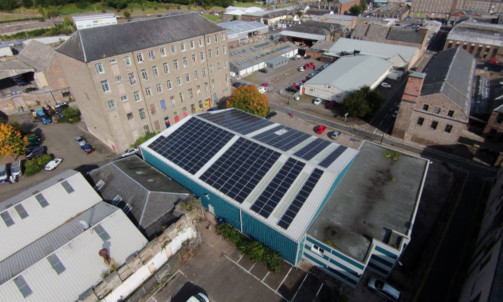Up to 2,400 solar trade jobs in Scotland could be at risk due to the proposed 87% cut to the feed-in tariff scheme, an industry body has warned.
Feed-In Tariffs are part of the Clean Energy Cashback, that pays people who put solar panels on their property for creating their own green electricity.
The Solar Trade Association say 80% of the 3,000 jobs in the industry north of the Border could be in jeopardy.
Throughout the UK up to 27,000 posts could be under threat.
The Department of Energy and Climate Change is proposing cutting the tariff paid for electricity generated by solar rooftop panels from 12.4p to 1.6p.
Across Scotland there are 40,841 solar homes and 975 big solar rooftops on schools, warehouses and other commercial buildings.
Solar has been praised for allowing households and communities to take charge of their energy bill and act on climate change.
An alliance of organisations ranging including the National Farmers Union, the Confederation of British Industry and local authorities have urged the Government to reconsider.
John Forster, chairman of Forster Energy, a Brechin-based solar energy company, said: “The Prime Minister should be backing the hundreds of small and medium-sized local solar businesses rather than big state-owned foreign utilities.
“With a team of 43 people involved in the day to day running of our solar installation business, the impact of the UK Government’s proposed cuts would be devastating to our business, our suppliers and our employees.”
“Tariffs paid for solar electricity must be reduced in a steady and structured way as the technology gets cheaper, rather than a sudden 87% cut.”
His company recently installed a 100kW solar array on the east and west roofs of a Dundee Industrial Association warehouse. It is supplying power for tenants on an adjacent building, enabling them to reduce their energy costs.
Paul Barwell, chief executive of the Solar Trade Association, criticised the UK Government for using sunlight levels in the south west of England as a measurement for setting the subsidy level rather than Yorkshire which was used in the past.
